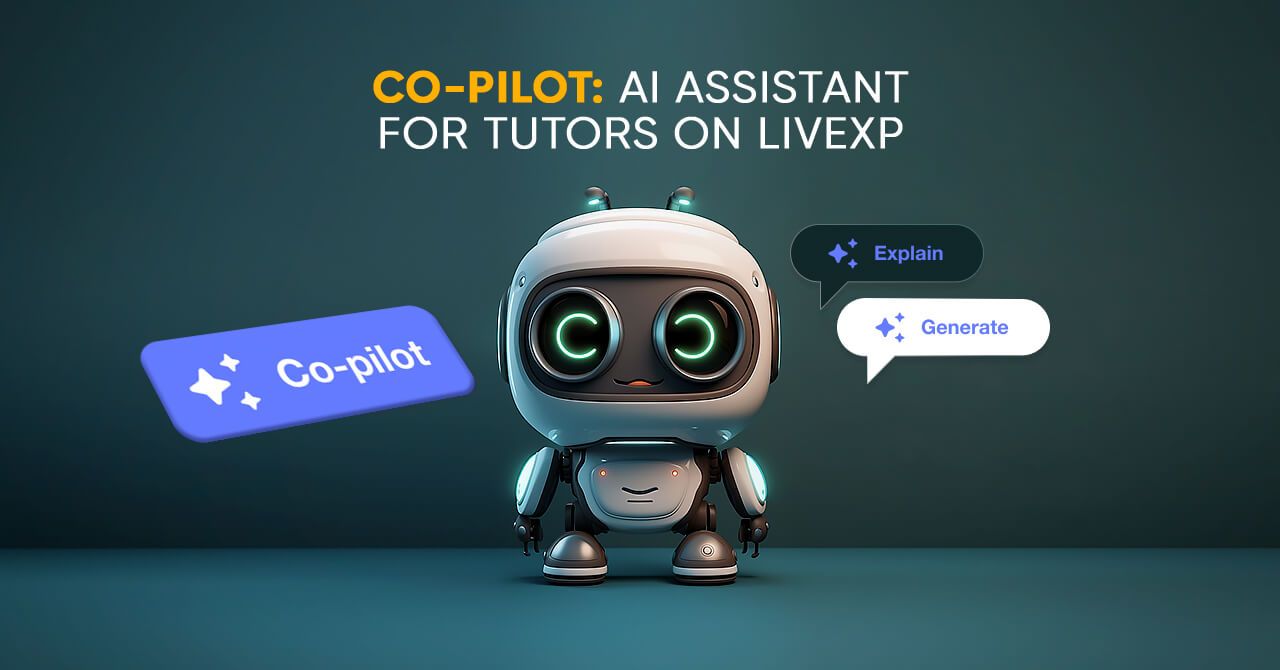LiveXP Blog
Develop yourself by learning new skills with LiveXP. Grow with us!

Introducing The New AI Assistant for Tutors (Beta)
We’re excited to announce a beta version of our AI-powered assistant called “Co-pilot.” It aims to provide additional support to tutors during lessons. For now, Co-Pilot is available for English lessons only. But we have plans to extend its capabilities to support other languages. Key Features of Co-Pilot Co-pilot operates directly from the Lesson Notes. If you highlight a word or phrase and click “Co-pilot” in the menu that appears, Co-pilot can: * Usage examples: The feature generates us

The Power of Active Listening: One Trick to Boost Your Language Skills
Some time ago, before I became an English teacher, I was interested in 3D modelling. I started searching for tutorials on 3ds Max and Maya (software for 3D artists). It quickly became clear that there were very few sensible tutorials in Russian, but there were plenty in English instead. At that time, I couldn’t even watch movies without Russian subtitles, and I couldn’t imagine a situation where I would have to speak English in real life. But the 3D lessons were very understandable, and it was a

English For Office: How to Help Your Workers Communicate Effectively
Learning any language, even English is a process, and the more you practice the language, the better your chances of learning faster.

Challenges Adults Face When Learning English as a Second Language
Learning a new language can be challenging for adults, especially if they have been speaking their native language for a long time. As a bilingual person who learned Shona and English as a child, I have noticed some differences between these two languages that affect how I learn grammar from new languages. In this essay, I will discuss some of these differences and how they make it harder for adults to acquire a new language. The spelling & pronunciation differences The first difference is th

Stop Translating Into English—Start Thinking in English
Thinking in English is a great way to increase your fluency and feel more confident when using English.

Spanish Dialects in South America
It should be remembered that, just as Spain has a great variety of dialects, each Latin American country also boasts a large number of variations within the same national territory.

What Are Indefinite Pronouns and How to Use Them?
Indefinite pronouns are used to refer to people, things, and places without specifying who, what, or where they are. For people, we use pronouns ending in -body or -one, whereas for things, we use pronouns ending in -thing, and for places, we use pronouns ending in -where. Types of indefinite pronouns in English 1. When referring to people, indefinite English pronouns usually end in -body or -one: anybody, everybody, nobody, somebody, anyone, everyone, no one, someone. 2. When referring to

A Guide to Introducing Yourself in English
Like any other language, introducing yourself in English involves much more than just saying your name and where you come from.